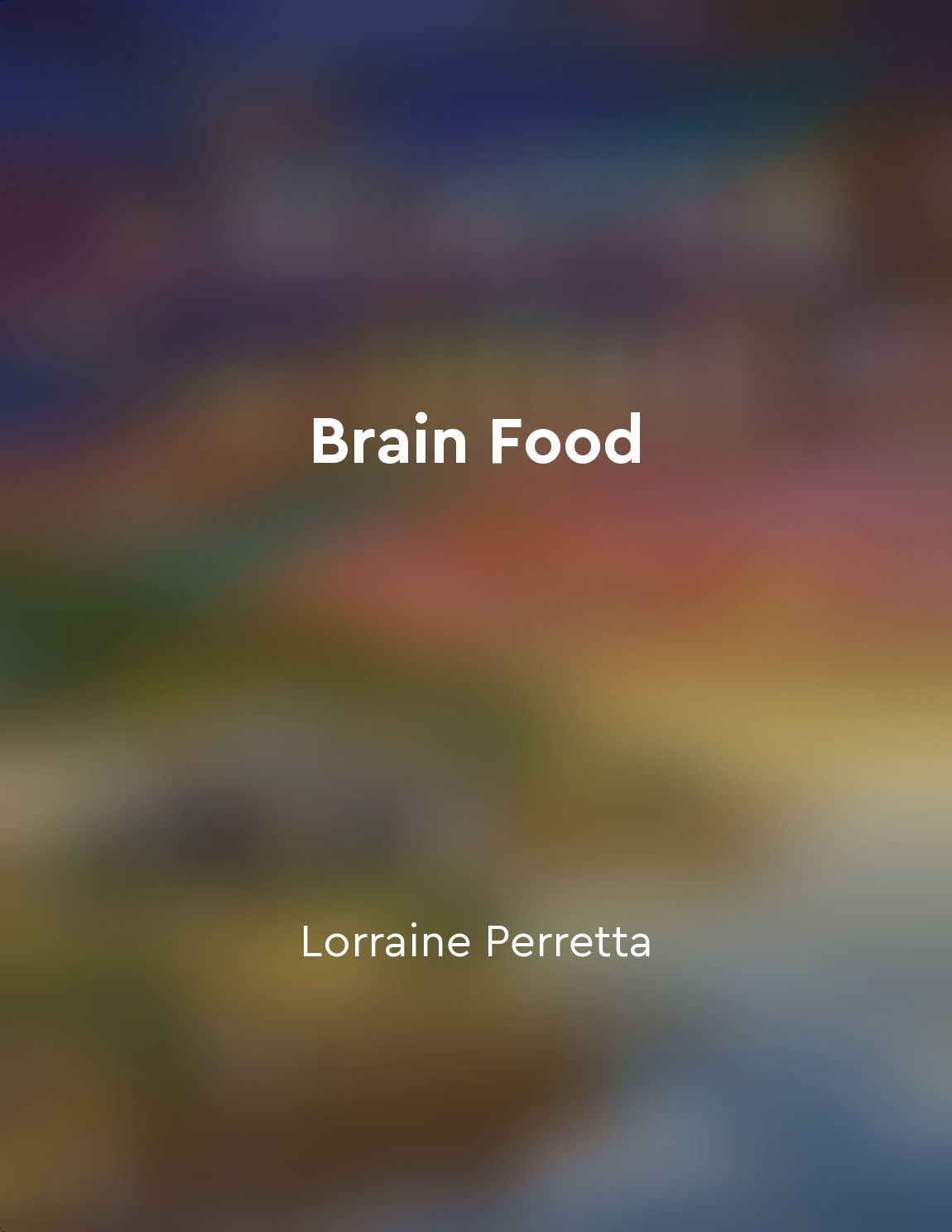Audio available in app
The brain requires specific nutrients to function optimally from "summary" of Brain Food by Lorraine Perretta,Oona van den Berg
The brain, being the complex and powerful organ that it is, needs a variety of specific nutrients in order to perform at its best. These nutrients play a crucial role in maintaining optimal brain function, supporting cognitive processes, and protecting the brain from damage and degeneration. One key group of nutrients that the brain requires is omega-3 fatty acids. These essential fats are found in high concentrations in the brain and are integral to maintaining healthy cell membranes, promoting communication between brain cells, and reducing inflammation. Sources of omega-3 fatty acids include fatty fish like salmon, walnuts, and flaxseeds. Another important nutrient for brain health is antioxidants. These compounds help to neutralize harmful free radicals in the brain, which can cause oxidative stress and damage to brain cells. Antioxidants can be found in a variety of foods, such as berries, dark leafy greens, and dark chocolate. In addition to omega-3 fatty acids and antioxidants, the brain also requires vitamins and minerals to function optimally. For example, vitamin B12 is crucial for brain health as it helps to maintain nerve function and support the production of neurotransmitters. Sources of vitamin B12 include meat, dairy products, and fortified cereals. Minerals like iron and zinc are also important for brain function, as they play a role in neurotransmitter synthesis and cognitive processes. Foods rich in iron include lean meats, beans, and leafy greens, while sources of zinc include oysters, beef, and pumpkin seeds.- Ensuring that the brain receives a steady supply of these specific nutrients is essential for maintaining cognitive function, supporting mental health, and protecting against age-related cognitive decline. By incorporating a variety of nutrient-rich foods into your diet, you can help to nourish your brain and promote overall brain health.


